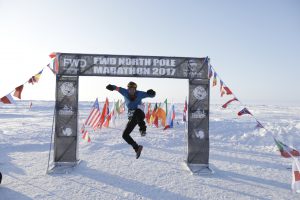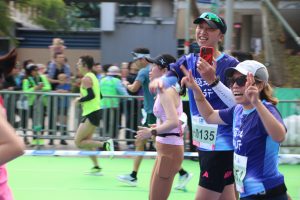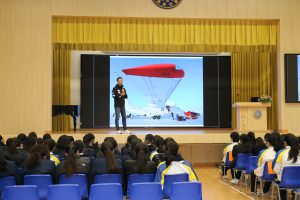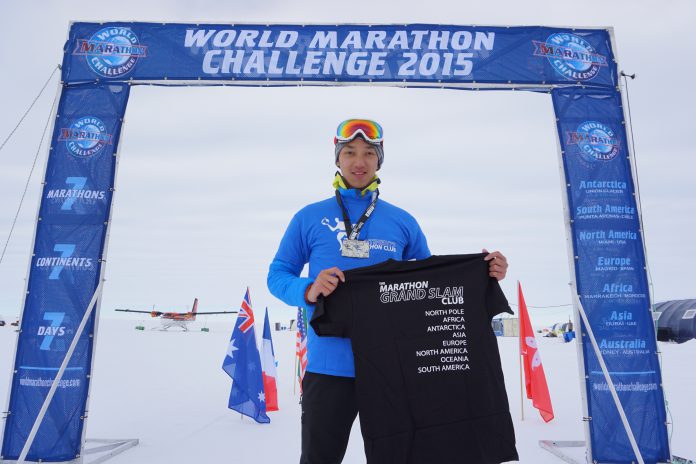A Hong Kong runner on his first ultramarathon and how it inspired him.
By Winnie Li
Ultramarathon runner Steve Lo Chun-yin is the first Hong Konger to finish a marathon distance of 42.195-kilometres-plus on each of the seven continents and the North Pole, doing so in 2015.
“The duration and the distance of an ultramarathon is quite long, and most of the competitions are in nature, so participants can enjoy time by themselves and talk to themselves. It is the me-time that I cannot experience in the city,” Lo says.
Lo began running ultramarathons after his boss shared that he ran alongside elderly and disabled people in the Marathon des Sables, a seven-day 250-kilometre ultramarathon in the Sahara Desert.
“I am not looking for a sense of success. I just want to see the blind running in the competition with my eyes to find out how they do that and finish the competition,” Lo says.

Following his passion for running, Lo founded Wheel for Oneness (WFO) in 2017.
“I want to help those with disabilities take part in marathons in groups so that they can experience it and get the chance to communicate with people,” he says.
In 2018, Lo organised a team of around 40 people to bring three disabled children in rickshaws to join a 100 km ultramarathon held in the Gobi Desert.
Lo is also a guide for blind runners. “It’s not only about the path that you are running. It’s also about helping them understand the whole environment,” Lo says.
“The biggest task is to first understand them. After that, you will find out that it (guide running) is just a way to get to know a new friend. It is just that the friend cannot see well,” Lo adds.
Recalling his first run in Sahara in 2012, there were moments that Lo wanted to give up.
During the race, Lo suffered from blisters on his feet that made it difficult for him to walk. He also had diarrhoea after drinking water with sand inside, and began to feel unwell after finishing 10km.
“I thought of giving up,” Lo says, but he continued the race.
“There was a team of French firefighters who brought a disabled runner with them using a rickshaw. When I got lost, I found marks left by them and found the next checkpoint and finally finished the run,” Lo adds.
He was inspired by the firefighters who helped the disabled runner.
“The firefighters took turns to cross the finishing line carrying the disabled participants,” Lo recalls.
Wanting to do the same, he then bought rickshaws of his own and set up WFO.
Lo received a lot of criticism when he first started his NGO since some thought he was only doing it for fame.
“The part that hurt me most is that those who we are helping also think so. But I never thought of giving up, as it is normal for people to have different thoughts of me,” Lo says.
When he resigned from work in 2018, his wife was supportive of his plan. Lo now brings his family to do volunteering with him.
“We can spend time with each other, and I can also educate my daughter to help others,” says Lo.

Lo now does school visits to share stories of his life lessons from running with students.

“School is a critical time to shape one’s personality and values, that’s why I keep going to schools to share my thoughts. I think it’s important for teenagers to understand the importance of contributing to society, and I hope they can make the society healthier in the future,” Lo says.
Edited by Liam Hordijk
Sub-edited by Nicole Li







































